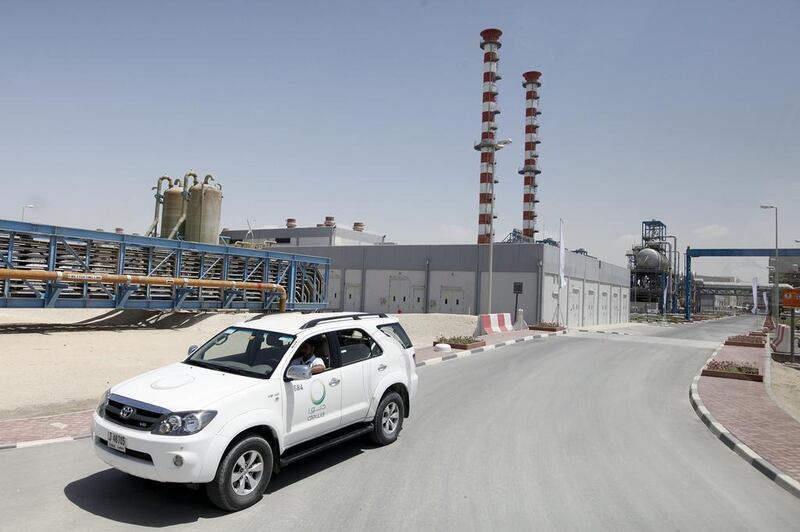Having taken the lead on developing solar power, Dubai is on the hunt for other renewable sources of energy it can make use of, such as the seas of the Gulf of Oman and the steam from the earth.
Dubai Electricity and Water Authority (Dewa) is requesting proposals for an early-stage feasibility study on producing electricity from geothermal energy and its use in desalination – removing salt from water to make it potable.
The other area of focus for the study will be to, for the first time in the country, gauge the potential for tidal, wave and ocean currents as a source for power generation.
Dubai’s Clean Energy Strategy includes the aim to generate 75 per cent of its electricity from clean energy sources by 2050.
Geothermal energy from beneath the Earth’s surface, the heat that creates hot springs, needs to be at temperatures of more than 200°C to be a prime candidate for power generation. The UAE’s temperatures are much lower than this, making geothermal more suitable for applications such as desalination rather than power generation, according to experts.
Steve Griffiths, the vice president for research at Abu Dhabi’s Masdar Institute, which has been studying the potential for geothermal in the UAE, said that using this kind of energy for desalination was the most viable option, as the GCC’s geothermal resources were only suitable for low-temperature applications, averaging about 100°C.
“It could be viable – the details will need to be worked out, but if there’s a tender for geothermal-based desalination, it’s not insane,” Mr Griffiths said, adding that the attractiveness resulted from the UAE’s efforts to “decouple power and water systems”.
“So it could be running as a stand-alone water desalination application, which could be cost-competitive with [other conventional approaches] such as reverse osmosis,” he said.
The hydrocarbon-rich UAE does have the advantage that geothermal energy can be found with the same drilling techniques that are used to explore for oil and gas.
However, when it comes to ocean power, Mr Griffiths said that to date he had not seen anyone propose using the sea as a way to generate electricity at any level of scale. “Based on the known information on renewable energy resources in the GCC, you probably wouldn’t bank on this approach for any significant amounts of electricity,” he said.
According to the European Commission, it is estimated that 0.1 per cent of the energy in ocean waves could be capable of supplying the entire world’s energy needs five times over.
But the fact is the technology just is not there yet. Using the sea to generate electricity has been deployed in only a handful of countries including France – and to date, nothing has been proven commercially viable.
Power generated from the ocean only totals about 500 megawatts globally, whereas solar photovoltaic applications totalling more than 64,000MW are expected to be added this year alone, according to market analysis by GTM Research.
In any case, interested consultancies will have a chance to explore the options, with proposals to be submitted to Dewa by the end of the month.
lgraves@thenational.ae
Follow The National's Business section on Twitter





